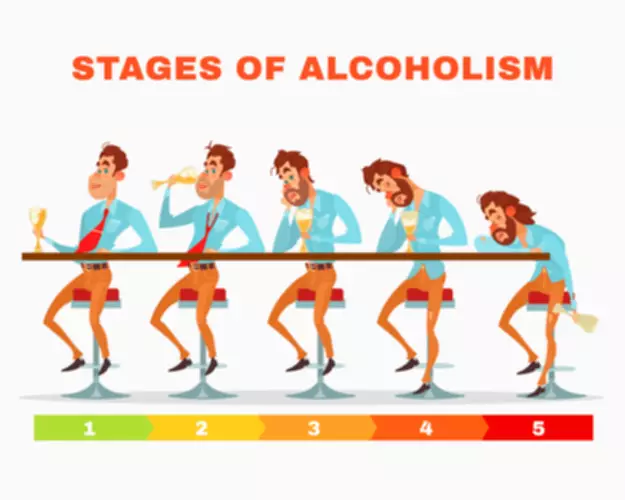John Bolton Says Trump’s Brain Is Cooked: ‘His Mind Is Full of Mush’

How can you break this cycle and keep racing thoughts from controlling you? “People who struggle with racing thoughts are constantly worried about what needs to be done, what hasn’t been done, and what is next,” says Fabrett. People often refer to these thought patterns as racing thoughts, and the most common cause is anxiety, says Fairlee Fabrett, PhD, a psychologist at Harvard-affiliated McLean Hospital.

Life
You might want to talk to a marijuana addiction provider if you frequently forget about appointments, have trouble completing ordinary tasks or find it difficult to pay attention when someone’s talking to you. Brain fog is common, and a provider can help you find out what’s causing your symptoms. People with EDS often experience multisystem symptoms due to faulty connective tissue, and cognitive dysfunction is common. Studies suggest that many with EDS struggle with poor memory, difficulty concentrating, and slower information processing. This can be worsened by chronic pain, fatigue, and anxiety, all of which are common in EDS. Emerging evidence shows that individuals with long COVID or other chronic illnesses often experience persistent brain fog, fatigue, and memory difficulties.
- Overthinking often stems from dwelling on past mistakes or worrying about things that you cannot change.
- ’ And then, if you don’t answer, like, you’re sort of semi-fired or you’re fired, because a lot of people are not answering because they don’t even exist.
- Overthinking may be a symptom of a mental health issue, like depression or anxiety.
- It’s like trying to run a high-performance sports car on low-grade fuel – eventually, things are going to sputter and stall.
- As we wrap up our journey through the labyrinth of brain confusion, let’s recap some key points.
What causes brain fog?
Implementing screen-free periods, using the Pomodoro technique, and engaging in offline activities such as reading or outdoor walks can help prevent digital burnout. Reducing unnecessary notifications and practicing digital detox methods can also enhance focus and cognitive health. Working with a healthcare professional to assess and regulate hormone levels can significantly improve cognitive function. Bioidentical hormone therapy, thyroid support, or lifestyle changes such as intermittent fasting may aid in balancing hormones and reducing brain fog. Similarly, hormonal fluctuations during pregnancy, menopause, or chronic stress can cause cognitive sluggishness.
Concussion’s Impact on the Brain: Affected Areas and Long-Term Consequences
Diet plays a crucial role in cognitive function and brain health. A diet lacking essential nutrients such as omega-3 fatty acids, B vitamins, and antioxidants can contribute to brain fog and fatigue. Processed foods high in sugar and trans fats can cause energy crashes, making the brain feel sluggish. Hydration is also essential, as even mild dehydration can impact cognitive performance.
Hydration and Electrolytes for Brain Fog

But, brain fog is not the same as fatigue, lethargy, or malaise (although they often go hand in hand). Once the underlying cause is addressed, your mental clarity can improve. Poor sleep quality can interfere with how well your brain functions, according to 2021 research. The impact of a mushed brain on daily functioning can be surprisingly far-reaching. From struggling to remember important details to making careless mistakes at work, the consequences of cognitive cloudiness can ripple through various aspects of our lives.
Brain Fog Scale: Measuring and Managing Cognitive Cloudiness
Don’t worry, I won’t suggest anything crazy like giving up Netflix or swearing off social media forever (though a little digital detox never hurt anyone). The hippocampus, our memory’s best friend, starts to struggle too. It’s like trying to file papers in a tornado – good luck remembering where you put your keys or what you had for breakfast. In a 2023 review, researchers noted that evidence supports the idea that obesity leads to cognitive decline.
Why Brain Fog Happens and Tips to Stop It
Long-term strategies involve improving sleep quality, incorporating brain-boosting foods like omega-3-rich fish and nuts, and practicing meditation. Physical activity also plays a crucial role in restoring mental clarity, as exercise increases blood flow to the brain and promotes neurogenesis. Developing structured work and relaxation habits can significantly reduce the frequency of this mental fog.
It might involve making some lifestyle changes, seeking professional help, or even considering a career change if your current situation is the main source of cognitive overload. After all, we can’t exactly unplug from the world and live in a cave (tempting as that might sound some days). By recognizing the signs and causes of cognitive overload, we can take steps to prevent our brains from turning into mental mush. In addition, people living with many of the conditions that can cause brain fog may benefit from probiotic supplements.
You might find yourself getting lost in familiar places or struggling to follow conversations. It’s like your brain has decided to take an impromptu vacation without bothering to leave you a map. Former national security adviser John Bolton said President Trump’s mind is “full of mush” as he navigates international affairs and ending the Russia-Ukraine war. Brain melting is a real phenomenon, and it’s something we all experience from time to time.

- It’s like your brain has decided to take an impromptu vacation without bothering to leave you a map.
- Brain fog is a body of symptoms characterized by mild, transient cognitive impairment.
- Many people experience cognitive problems after COVID-19, even long after the initial infection has passed.
- Trump has called Ukrainian President Volodymyr Zelensky a “dictator” while not applying the term to Russian President Vladimir Putin.
The experience of a mushy brain is not purely physical—it also involves the emotional and psychological layers of human experience. Chronic stress, trauma, and emotional suppression can lead to dissociation, a protective mechanism where mind is mush the brain distances itself from overwhelming stimuli. While dissociation serves a survival purpose, it also reduces the brain’s capacity for coherent thought and emotional regulation. Sleep deprivation impairs glucose metabolism in the frontal cortex, resulting in slower thinking, poor judgment, and impulsivity. In fact, being awake for 20 hours has been shown to impair cognitive performance as much as a blood alcohol level of 0.08%.



